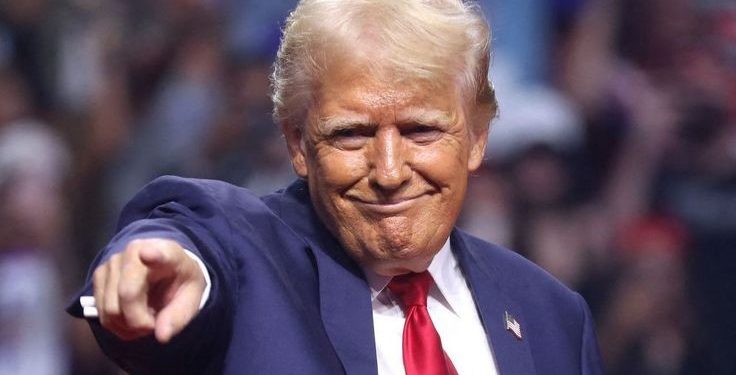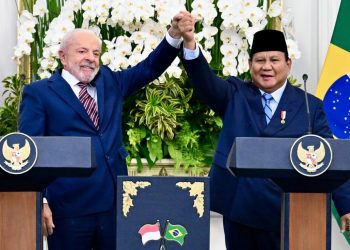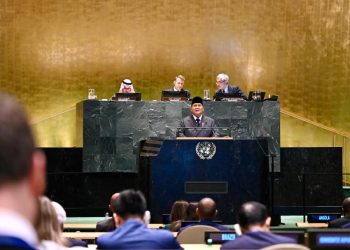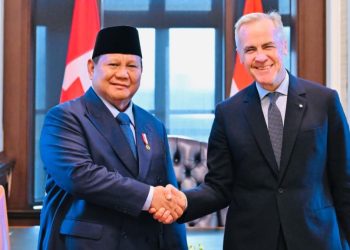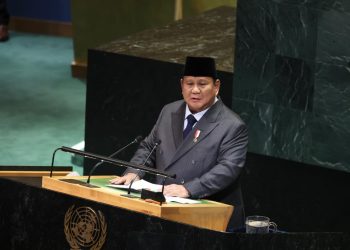Jakarta, Indonesia Sentinel — President Donald Trump on Monday (February 3) announced a 30-day suspension of high tariffs on Mexico and Canada, while tariffs on China remain set to take effect as planned.
Trump granted the temporary reprieve in exchange for concessions from the two neighboring countries on border security and crime enforcement.
According to Detik, Canadian Prime Minister Justin Trudeau and Mexican President Claudia Sheinbaum confirmed that both nations agreed to tighten border security in response to Trump’s demands to curb illegal immigration and drug smuggling.
Canada has committed to deploying new technology and personnel along its border with the U.S., as well as launching a joint effort to combat organized crime, fentanyl trafficking, and money laundering. Meanwhile, Mexico has agreed to bolster its northern border by deploying 10,000 members of the National Guard to stem the flow of illegal migrants and narcotics.
These commitments led Trump to delay imposing a planned 25% tariffs on both countries, originally set to take effect Tuesday (02/04), for at least 30 days.
“As President, my responsibility is to ensure the safety of all Americans, and that’s exactly what I’m doing. I’m very pleased with these initial results,” Trump said on social media.
The agreement temporarily averts a trade war that economists warn could harm all parties involved and drive up consumer prices.
After speaking with Trudeau and Sheinbaum over the phone, Trump indicated that he would seek to negotiate an economic agreement over the next month with the two nations, whose economies have been deeply integrated since the historic free trade agreements of the 1990s.
The latest developments caused the Canadian dollar to surge after hitting its lowest level in over two decades, while U.S. stock futures rebounded following a day of declines on Wall Street.
Tariffs on China to Proceed
However, no such agreement was reached with China, which will still face a 10% tariff beginning Tuesday (02/04). A White House spokesperson said Trump does not plan to speak with Chinese President Xi Jinping until later in the week.
Trump warned that tariffs on Beijing could be raised even further. “China is expected to stop sending fentanyl into our country, and if they don’t, the tariffs will go much higher,” he stated.
Beijing has dismissed fentanyl trafficking as a domestic issue for the U.S. and has vowed to challenge the tariffs at the World Trade Organization (WTO) while considering other retaliatory measures. However, China has also signaled a willingness to negotiate.
Read Also:
Trump Imposes Tariffs on Imports from Canada, Mexico, and China
EU Could Be the Next Target
Trump hinted on Sunday (02/02) that the European Union (EU) might be his next trade target, though he did not specify a timeline. European leaders warned that Trump’s tariff threats could spark a trade war that would hurt consumers on both sides of the Atlantic while strengthening China’s global position.
European Commission President Ursula von der Leyen acknowledged the “potential challenges” in transatlantic trade relations. “If tariffs are imposed unfairly or arbitrarily, the European Union will respond firmly,” von der Leyen said following an informal meeting of EU leaders in Brussels.
She emphasized that EU leaders aim to take a pragmatic approach, engage in early discussions, and negotiate a resolution with the U.S. to prevent trade tensions from escalating.
(Raidi/Agung)


